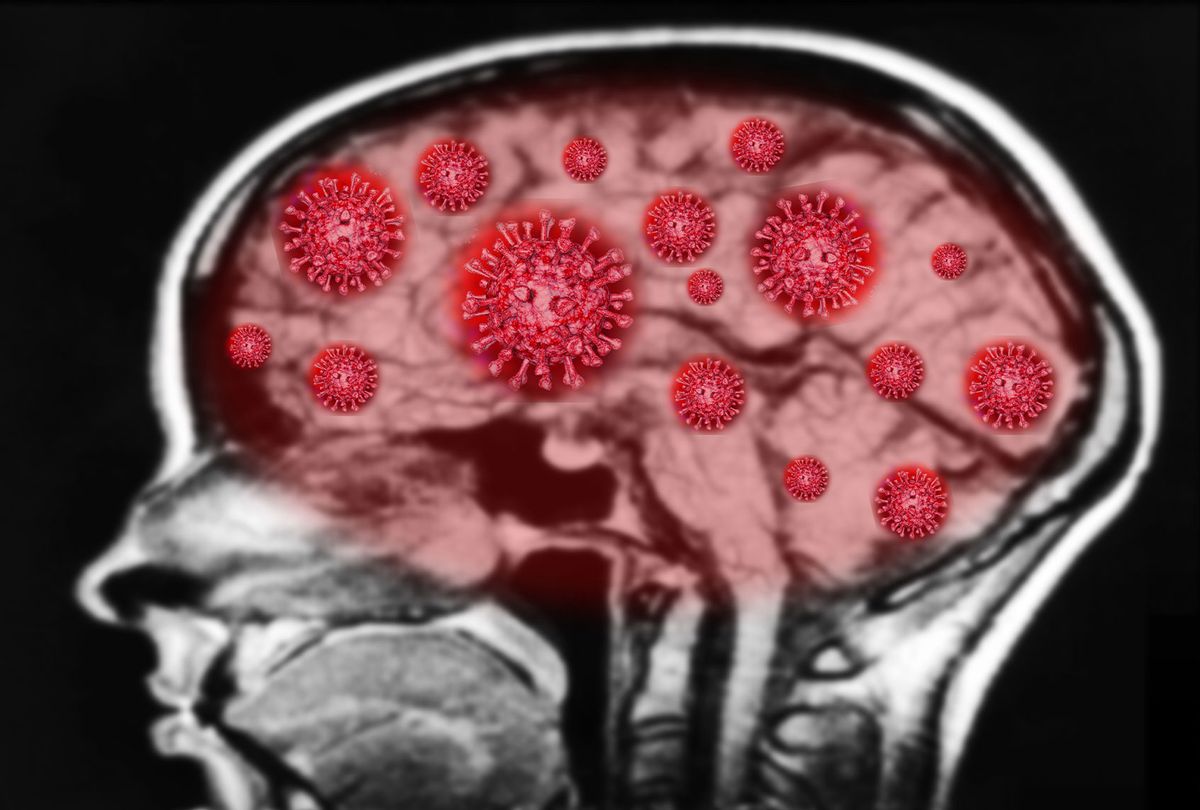We tend to think of COVID-19 as merely a respiratory disease, but the truth is that it can damage a number of vital systems in our body. That's been made horrifyingly clear by the number of recovering patients who are known as "long-haulers" — people who no longer have virus in their bodies, but who have lingering long-term symptoms often unrelated to their respiratory system.
Take, for instance, people whose brains have been damaged for SARS-CoV-2, the virus that causes COVID-19.
This is the area of concern for Dr. Ricardo Costa, a postdoctoral fellow at the Louisiana State University (LSU) Health Shreveport and the first author of an upcoming study about how COVID-19 patients may experience lingering brain-related side effects after being infected. He and his colleagues delivered a presentation about their findings at the American Physiological Society annual meeting during the Experimental Biology (EB) 2021 meeting held last week.
"Our in vitro study using cell cultures suggests that astrocytes and neurons – the cells that make up most of our brain – can be infected by SARS-CoV-2, the virus that causes COVID-19," Costa told Salon by email. "We also analyzed the resistance of each of these cell types to infection and saw that astrocytes seem to offer more resistance to infection, while neurons appear to be easily infected."
Costa noted that, because astrocytes are usually the body's first line of defense in the blood-brain barrier that protects our gray matter from foreign invaders, some patients exhibit no neurological systems because their astrocytes stop the pathogens. If the virus is able to get past the astrocytes, however, it will have an easier time getting to the neurons.
Want more health and science stories in your inbox? Subscribe to Salon's weekly newsletter The Vulgar Scientist.
"There are currently two lines of though on how SARS-CoV-2 can impact the brain: either directly by viral infection or indirectly by high levels of system inflammation caused by infection elsewhere, usually in the respiratory system," Costa explained. "We already know from other diseases that very high levels of systemic inflammation will affect the brain. Currently, there are only limited data on the viral presence in the brain and us and other groups are working on determining how the virus seems to gain entry intro the brain and which regions are affected the most."
This is not the first study to suggest that COVID-19 may harm the brain in ways that will persist long after a patient is initially infected. A study released last month detailed how COVID-19 can affect multiple organ systems, warning health care providers "integrated multidisciplinary holistic care" will be needed for many of its victims long after the current pandemic has subsided. Similarly, The Lancet Psychiatry published an article last month in which they found that more than one-third of more than 230,000 COVID-19 patients developed lingering neurological or psychiatric issues.
"I think the main finding here is that 'long COVID' can affect nearly every organ system," Dr. Ziyad Al-Aly, chief of the research and development service at the St. Louis VA Medical Center in Missouri and leader of the study, told Salon at the time. "That means it's going to affect the brain through the brain fog and memory problems. It can result in stroke and it can affect the heart, causing acute heart failure, acute coronary disease."
Al-Aly added that other parts of the body can also be damaged by COVID-19, from the kidneys to the liver. In addition, COVID-19 can interfere with the body's natural ability to clot, increasing the risk of blood clots in the legs and having them travel to the lungs.
In terms of the research on COVID-19 and the brain, Costa made it clear to Salon that his team plans on continuing to work on this problem for the foreseeable future.
"The results we are reporting are the initial stage of a bigger study," Costa said. He added that his scientists plan on learning more about how SARS-CoV-2 enters the brain by using brain organoids, or tiny 3D aggregates of neuronal cells in culture that can in certain ways represent a real human brain. They also intend to do research with mice and study brain samples from COVID-19 patients.



Shares